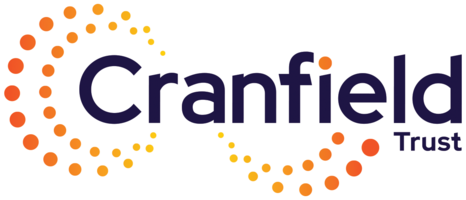The campaign message of the new government was ‘Change’ – and the election has delivered political change. It’s great that eight Cabinet members and 242 MPs (identified in Pro Bono Economics’ database) have experience in the voluntary sector, and that there were positive intentions expressed during the campaign, but there wasn’t a strong and substantial manifesto commitment to make the changes needed in the voluntary sector. Despite strong campaigning from charities, there wasn’t a real acknowledgement of the importance of the sector and the role it plays in all our lives.
At Cranfield Trust we champion small charities, the kind that provide everyday services that we all rely on, that often work under contract to local government to provide vital services, and that offer the community support and presence that is so valuable to us, whoever we are.
Cranfield Trust provides free management support to smaller charities, thanks to our 1,400+ volunteers across the country, professionals who give their time to help charities develop their management skills and confidence to match their service expertise.
Income is the main challenge
Over the past 12 months, we’ve collected information from more than 1,250 small to medium size charities on their key challenges. Despite the large sample, there’s not much new information coming through our data. Charities are facing the same challenges now as they were a decade ago and this needs to change.
The top challenges are around resources:
47% gave difficulty in raising funds/generating income as their main challenge
17% gave recruitment of staff and volunteers
14% gave inability to meet demand for services
People challenges were the next highest group of issues:
5% mentioned staff and personal wellbeing were their main issue
6% said staff development and learning
5% said Board and governance challenges
The type of support that we deliver through our consultancy support hasn’t changed either: around 50% of our projects are focused on strategic and business planning every year. It’s a concern to us that charities find it difficult to plan ahead – but given the uncertainty of their operating environment, it’s not surprising. Our fastest growing service over the last five years has been mentoring – providing personal support for leaders and managers in their roles.
The strain on individuals working in the sector is enormous, people working in small charities have been under pressure for years. We are always impressed by the resilience and determination of small charity leaders, but despite the lack of change in the nature of the challenges they’re facing, it’s arguable that their situation is more severe than before. Nottingham Trent University’s VCSE Barometer clearly shows a demand/capacity gap with almost 70% of charities expecting an increase in demand for services in the next three months, and 47% of employees already working increased hours to try and keep pace with demand.
Despite the fact that (most, or many) charities have survived so long, should we expect them to continue in this way?
Is investment the only means of effective change?
If we don’t change things for small charities, it’s likely that many more won’t survive, and we will lose key services, delivered in people-centred and user-friendly ways, that we really value. Already, small charities have lost £4.6bn of income since the pandemic, and many are closing. If we don’t take action we risk losing the skills, contacts and knowledge of experienced people – staff and volunteers – across the country, who make a difference to our lives every day.
So what will make a change? The obvious answer is investment – charities need more secure income, and to be confident of fair pricing and terms when delivering services under contract. IVAR’s work in its ‘Open and Trusting’ grant making initiative is a call to funders to provide unrestricted, long term income, which we strongly support. Many charities generate income through trading, and have been slow to recover after lockdown closed shops and cafes, which are vital sources of funds. Trading activities have returned – but many are dependent on premises and have been hit by high energy costs.
A substantial change in the levels of investment in the voluntary sector is unlikely, and the new government doesn’t have the resources required to make major change in public or voluntary sector services, however valuable and needed.
A place at the table – and raising awareness
What we can ask for from the new government is public and formal recognition. Recognition of the value of smaller charities, of the difference they make and of the knowledge they hold. The Welsh Government’s Third Sector Scheme, statutory legislation under which Ministers meet regularly with sector representatives, and which offers a formal route for the voluntary sector to talk to Government, should be replicated in Westminster, so that our politicians are informed and understand the vital role that charities play in our society. Labour went beyond a commitment to having a Minister for the Voluntary Sector in their campaigning, and promised representation on mission boards, and for the sector to be represented across government – but every Minister should be for and speak up for charities, they are woven into the fabric of every aspect of our lives, and of government.
The new MPs and Ministers are familiar with the sector, and should be our champions, raising awareness of how charities operate, and their role in our public services. Too many members of the public don’t know how modern charities work, our close relationship with government in service delivery, and how our funding is structured. The age old question of ‘spending on admin’ needs to be addressed by public education into charity management and operations – it’s outdated to assume that charities should not allocate resources to good management.
Cranfield Trust is 35 years old this year, and we’re committed to doing everything we can to support small charities. We work with around 750 organisations every year on intensive consultancy projects and mentoring assignments, thanks to our volunteers. We provide peer support groups, telephone advice and training which reach hundreds more, and we’ll keep going. Without charities, we’d all struggle to maintain and enjoy our daily lives, and we’d lose so much in terms of community and companionship. With a new government elected on the promise of change, let’s make sure that change happens for charities too.




